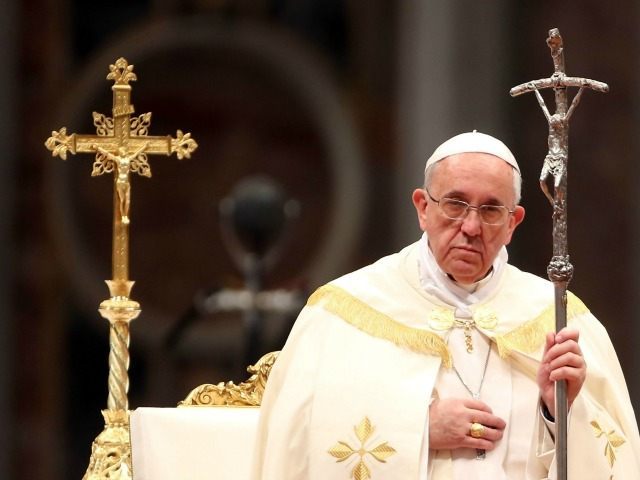In an hour-long interview with the Asia Times, Pope Francis spoke about his general impressions of China as well as his hope that the Chinese people will be able to work together with other countries to bring about greater peace and prosperity.
In particular, the Pope advised against fear of China’s growth as an emerging economy on the world stage. “Fear is not a good counselor,” Francis said. “If a father and a mother are fearful when they have an adolescent son, they will not know how to deal with him well. In other words, we must not fear challenges of any kind, since everyone, male and female, has within them the capacity to find ways of co-existing, of respect and mutual admiration.”
Francis also remarked that China’s growth should come as no surprise, since all cultures and civilizations with something important to share tend to expand.
It is obvious, he said, “that so much culture and so much wisdom, and in addition, so much technical knowledge – we have only to think of age-old medicinal techniques – cannot remain enclosed within a country; they tend to expand, to spread, to communicate.”
“Man tends to communicate, a civilization tends to communicate. It is evident that when communication happens in an aggressive tone to defend oneself, then wars result. But I would not be fearful,” Francis said. “It is a great challenge to keep the balance of peace.”
“The Western world, the Eastern world and China all have the capacity to maintain the balance of peace and the strength to do so. We must find the way, always through dialogue; there is no other way,” he said.
In early 2015, underground Catholic bishop Joseph Wei praised the Vatican’s overtures toward Beijing. “We support all these initiatives that the Pope is taking to communicate his willingness to talk,” he said. The Vatican has indicated it may be willing to break off relations with Taiwan, which is a condition laid out by mainland China for the renewal of diplomatic relations.
“A Christian always tries to take the first step to reconcile and heal the wounds of men and society,” he said. “So it is right for the Church to take the first step.”
Wei himself has been imprisoned three times, once for more than two years, and has had his personal freedoms restricted. Moreover, his episcopal ordination is not recognized by the government because of Beijing’s animosity toward Rome. He was invited to attend the Synod of Bishops at the Vatican in 2005, but the government barred him from attending
Since 1958 China’s Catholic Church has been divided into underground and open communities, with the latter going by the title of the Patriotic Catholic Association. A Vatican document of 1988 barred Roman Catholics from participating in the sacraments of the so-called Patriotic Church, since the association had issued a proclamation saying the church “had broken all relationships with the pope” and would be “under the direct control of the government.”
Asked about China’s population crisis due to decades of a severe one-child policy, Pope Francis opted not to criticize the Communist government and its population control programs, preferring to empathize with the difficulties they face now with an ageing population.
It is true, he said, “the problem for China of not having children must be very painful; because the pyramid is then inverted and a child has to bear the burden of his father, mother, grandfather and grandmother. And this is exhausting, demanding, disorientating. It is not the natural way.”
“I understand that China has opened up possibilities on this front,” he added, referring to the recent modification of the Chinese one-child policy to accommodate a second child. Critics have noted that even under this change, the Communist government has not relinquished its absolute control over family size and its coercive methods of enforcing it.
Without ever mentioning the Cultural Revolution, Mao Zedong’s labor camps or the millions that died under his iron rule, Pope Francis said that “every people must be reconciled with its history as its own path, with its successes and its mistakes. And this reconciliation with one’s own history brings much maturity, much growth.”
“And so, when one takes responsibility for one’s own path, accepting it for what it was, this allows one’s historical and cultural richness to emerge, even in difficult moments,” he said.
“I believe that the great richness of China today lies in looking to the future from a present that is sustained by the memory of its cultural past. Living in tension, not in anguish, and the tension is between its very rich past and the challenge of the present which has to be carried forth into the future; that is, the story doesn’t end here,” he said.
The Pope ended the interview by conveying my best wishes and greetings to President Xi Jinping and to all the Chinese people on the eve of the Chinese New Year.
“And I wish to express my hope that they never lose their historical awareness of being a great people, with a great history of wisdom, and that they have much to offer to the world. The world looks to this great wisdom of yours,” he said.
Follow Thomas D. Williams on Twitter @tdwilliamsrome

COMMENTS
Please let us know if you're having issues with commenting.